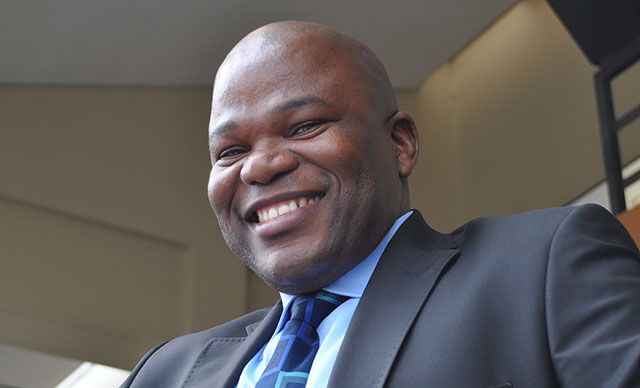
Musa Phungula, the entrepreneur behind the proposed US$130m TTD cable to connect Mtunzini in KwaZulu-Natal to East London, Port Elizabeth and Yzerfontein near Cape Town, says collaboration between other projects to build submarine fibre along the same route is needed.
Phungula’s company, Techteledata, has spoken to other cable companies about collaboration but they are “hedging their bets”.
He says failure to collaborate could result in “price wars” and could “undermine investments already made”.
Seacom plans to build a fibre cable along this route, too — the South African Marine System (Sams) — while eFive Telecoms is leading an initiative to build the South Atlantic Express (SAEx) system along the same route, and then across the Atlantic Ocean to Brazil.
A fourth project, the Brics Cable, has been planned to lay a system all the way from Russia to China, around to India, along South Africa’s coastline, then also across to Brazil and North America.
“Companies involved have to go for win-win scenarios and [have] an attitude of inclusion in order to avoid jeopardising each other,” Phungula says. “It is obvious that each of the aspirants want to build rather than buy, so collaboration will not only save on [capital expenditure], but will also ensure success for all.”
He has met with Andrew Mthembu, the man behind the Brics project, and with Rosalind Thomas, CEO of eFive Telecoms.
Seacom CEO Mark Simpson says his company has had contact with Techteledata but is not engaged in discussions currently, while the Brics Cable project is also not involved in “meaningful discussions” with Techteledata, says Mthembu. Thomas could not be reached for comment.
“All parties concerned will collaborate with the company that is in the water first,” Phungula predicts. This makes collaboration before the time difficult because they don’t want to make commitments until they’re convinced a cable system is actually going to happen.
“People are reluctant to tie themselves up because they could end up collaborating with someone who doesn’t succeed. People are holding their breath until very late in the process.”
Techteledata plans to announce its technical operator, turnkey supplier and its financial partners in August.
Once a supplier has been appointed, Phungula says Techteledata will begin applying for the necessary permits. “We are positioning ourselves to make sure we can fast-track the permitting. We want to partner with telecoms players so we can expedite the process from the normal 20 months to 12 months and meet the fourth-quarter deadline we’ve set.”
The cable will take three or four months to deploy, and there are plans to build data centres while the cable is laid so that the project can be operational before the end of 2014.
Phungula says the TTD project is will cost between $100m and $130m but he can’t disclose who the potential investors are because of nondisclosure agreements.
Techteledata originally intended to build two enormous data centres of roughly 6 000sq m each, one at Yzerfontein and the other at Mtunzini, but Phungula says this plan has “changed slightly” because of the capital expenditure required and because of “reasonableness”.
“We’re now going for 500sq m data centres at each landing point, one in Port Elizabeth, one in East London, and one each in Mtunzini and Yzerfontein.” The data centres will be “carrier neutral” and “open access” and will be designed to allow for future expansion. — (c) 2013 NewsCentral Media

